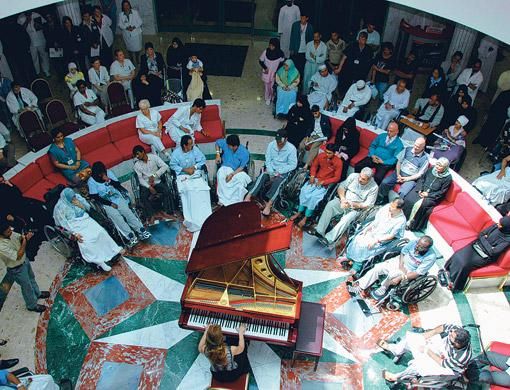Abu Dhabi: Music therapy improves anxiety, body movement, facial expression, mood, pain, shortness of breath and verbalisations which are an asset to palliative medicine programmes.
In an exclusive interview with Gulf News Dr Kamal Chemali, a neurologist at Cleveland Clinic (who manages the Shaikh Khalifa Medical City - SKMC) spoke about the importance of tempo, rhythm, melody, dynamics and texture of music on the brain.
"Music can modulate a person's heart rate, blood pressure and the autonomic nervous system (part of the nervous system that's not under our own voluntary control). Studies have also shown that music calms anxiety," said Chemali, who spoke about the 20 cancer patients who received music therapy twice a day for 20 minutes, versus another 20 who didn't.
"From that study we found out that the group, who received music therapy, experienced a reduction of anxiety by 60 per cent versus the other group who had an increase in anxiety by 12 per cent. Anxiety is a scale from 1 to 10 and feelings such as stress, discomfort, lack of well being, increase in blood pressure and fast heart beats are measured," he told Gulf News.
More than 100 patients, some in wheel chairs, watched a live performance by a concert pianist on Wednesday at the SKMC and Superior Conservatoire of Paris. Prisca Benoit, who has worked closely with Dr. Chemali, explained that performing particularly for patients is "a rewarding experience." She said: "I am always particularly moved from within when I play piano with doctors for patients. It's a completely different experience than in the concert hall that gives a new meaning and a broader dimension to our mission as musicians."
For Chemali, Benoit is a haptonomist. "Haptonomi comes from the word 'haptein' meaning touch and 'nomos' meaning the rule or the law. It aims to release and facilitate the cure and comprehension by the touch. That's why I always encourage patients to attend live piano concerts every now and then; especially with pianists such as Benoit who dances with her piano giving a feel of comfort, closeness and relaxation. Today the 100 patients were relaxed and affected by the music she played."












